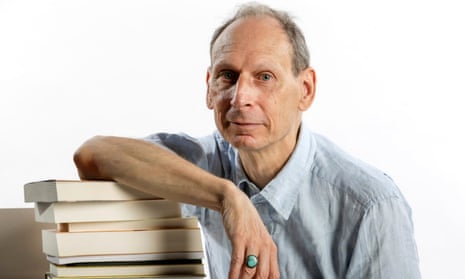I have been publishing my novels in the UK since 1998, when my first book, The Last Kabbalist of Lisbon, became a surprise bestseller.
I generally come to Britain from my home in Portugal whenever a new work of mine is released to give talks at bookshops, libraries and literary festivals. My publisher’s attempts to interest event organisers in me aren’t always successful, of course. But this year, for the first time, I have been turned down for being Jewish. A little context. Peter Owen Publishers launched my new novel, The Gospel According to Lazarus, in mid-April. An old friend of mine who is a part-time book publicist began trying to set up events for me three months earlier.
In early March, he called and confessed – in a distressed tone I’d never heard before – that he had just been turned down by two cultural organisations that had previously shown enthusiasm for hosting an event with me. “They asked me if you were Jewish, and the moment I said you were, they lost all interest,” he said. “They even stopped replying to my emails and returning my phone messages.”
I’ll call my publicist John as he prefers to remain anonymous. He has also asked me to refrain from identifying the organisations that reacted negatively to my being Jewish. John told me that the final conversations he had with the two event co-ordinators convinced him that they weren’t antisemitic themselves but they feared a backlash – protests by their members and others – if they extended an invitation to a Jewish writer.
After our phone conversation, I was deeply shocked and upset. Facing discrimination is always unpleasant and infuriating and I never expected that my career in the UK would be prejudiced by my being Jewish. It made Britain seem like a place I didn’t know and maybe never knew. Even just asking about my religious affiliation struck me as outrageous. The situation seemed particularly ironic because I have long endeavoured in my novels to give voice to people who have been systematically silenced by prejudice and bigotry. Obviously, I do not believe that anyone benefits when writers are censored for their ethnicity or faith.
In the legal system of the US, where I grew up, when an action is deemed to cause people to hesitate to live their lives freely or exercise a legitimate right for fear of repercussions it is said to have a “chilling effect”. My conversation with John taught me that the current climate of anti-Israel and antisemitic sentiment in the UK seems to have created this chilling effect throughout British society.
Has the Boycott, Divestment and Sanctions movement played a role in deepening this atmosphere of fear? That’s what my friends in the UK tell me. They also speak bitterly of the unwillingness of the Labour party to take a firm stand against antisemitic discourse. If cultural organisations are afraid of hosting events for Jewish writers, then Britain has taken a big step backwards.
Let’s not get sidetracked with references to Israel. Although it’s perfectly legitimate for those who oppose Netanyahu’s policies to protest against them, I have no connection with Israel. I have neither investments nor family there. And my most well-known books take place in Portugal and Poland. It’s true my new novel is set in the Holy Land, but it takes place 2,000 years before the foundation of the state of Israel. As for my nationality, I’m American and Portuguese.
Happily for me, my particular case is unimportant – I’ll be able to write novels and make a living even if no one ever invites me to speak in the UK again. And in Portugal, where I live, I almost never have to deal with virulent antisemites because they represent only a tiny fraction of the population. But what about artists, writers, dancers and singers whose careers in Britain are hindered or blocked by a fear of repercussions and who are unable to continue to make a decent living there?
Are there Jews – scientists, engineers and professors, for example – who are denied jobs in the UK or lose contracts because of prejudice? Five or 10 years ago, I’d have said it was highly improbable. After my recent experience – and after all I’ve read about the recent rise of antisemitism in the UK – I’d say it was entirely possible.
And this I know: if you fail to be welcoming to Jewish writers and artists because you fear a backlash, then your cowardice makes it possible for the haters to have their way – to spread their irrational dislike of Jews and make shunning them seem acceptable. Is that really the “new normal” you want for Great Britain?
